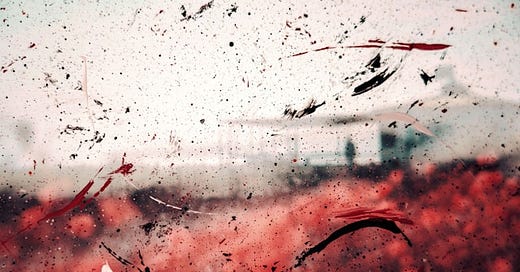Ripley's Game
Feeling my way through Patricia Highsmith's third Ripley novel
The Netflix series RIPLEY must be behind the resurgence of curiosity the Tom Ripley crime series by the late Patricia Highsmith. The first novel, The Talented Mr. Ripley, is surely the most compelling. It bears witness to Tom’s climb—his ascent from a squalid existence in Manhattan, where he quietly executes petty crimes of extortion from vulnerable individuals, to a life of leisure in which he gets to live in a Venetian palazzo and evade capture by polizia. In the second novel, Ripley Under Ground, we find him nearly domesticated in a French marriage, although he is growing restless and gets pulled into defending the web he had already spun. Finally, in Ripley’s Game, we find him seemingly very happy in his marriage and, actually, quite bored with the ridiculous crimes that Reeves Minot keeps asking for him to assist in, or at least give advice on. I wrote about the first novel already. See here:
The second novel raises still more fascinating questions about intellectual freedom and authenticity. Ripley had conceived of an elaborate scheme of art forgery, but in fact had nothing to do with the execution of his idea. While it was necessary for him to be part of the coverup—and it was fun to read about him taking on the identity of a dead man in that effort—the acts of making and selling the forgeries were carried out by others. Tom could sit at ease in his suburban garden while others did the dirty work. Tom had truly arrived at the pinnacle of criminal mastery! Bernard, though—the artist whose works were being passed off as the works of the man actually dead—he is in a crisis of conscience, and for Tom’s scheme to continue unimpeded, Bernard has to be dealt with. One way of Tom’s dealing with Bernard is to make him even more guilty. By making him an accessory in something else, and by showing him the complexity of the scheme, and reinforcing the livelihoods tied to it, Tom compounds the crisis for Bernard. I can’t really explain the title of the book—Ripley Under Ground—without giving away a very critical spoiler, but maybe I’m not doing too much harm to say that the title is a literal reference to something that happens to Tom.
By the time we get to Ripley’s Game, Tom is even further removed from the action. Much of the first half of the novel focuses almost exclusively on a brand new character, Jonathan Trevanny, who feels in some ways like Dickie Greenleaf. We get Jonathan’s history as a 30-something who never really felt like he fit in anywhere. This reminds me of Dickie, even though the external circumstances bear no resemblance. Jonathan is a financially insecure small business owner with an incurable medical diagnosis that leaves his life on the hook. He could die tomorrow or he could die in a year. His doctor doesn’t know. Dickie was a trust fund kid, in good health, and yet for all his financial security and vibrance, Dickie was a lost man. I had the feeling he was as lost in Italy as he had been in America, and perhaps he was equally lost when at sea on his boat. He was happy on his sailboat, we are told. He loved that sailboat. He drifted at sea as he drifted in life. It’s the same for Jonathan, who worked a series of random jobs and lived in different places without finding fulfillment. By a cruel twist of fate, he gets the fatal diagnosis just when he settles into a life he can see himself living—with a wife, a young son, and a job he can do well. The job might not be something he’s passionate about, but he’s good at it, and he can scrap along well enough to put food on the table and clothes on their backs. In short, he is the kind of person most vulnerable to a Ripley game—dissatisfied and full of doubts. Maybe he has a strong sense of right, even to the point of being annoyingly self-righteous, in Tom’s view, but he has a shaky sense of self that makes him easy prey. Recall in the first book that Tom attempted to lure Dickie into a petty act of crime. Jonathan faces a similar test from Tom. No spoilers! Even Tom gets over his head in the third book. Petty crime becomes organized crime. Once you hit the mafia, all bets are off!




